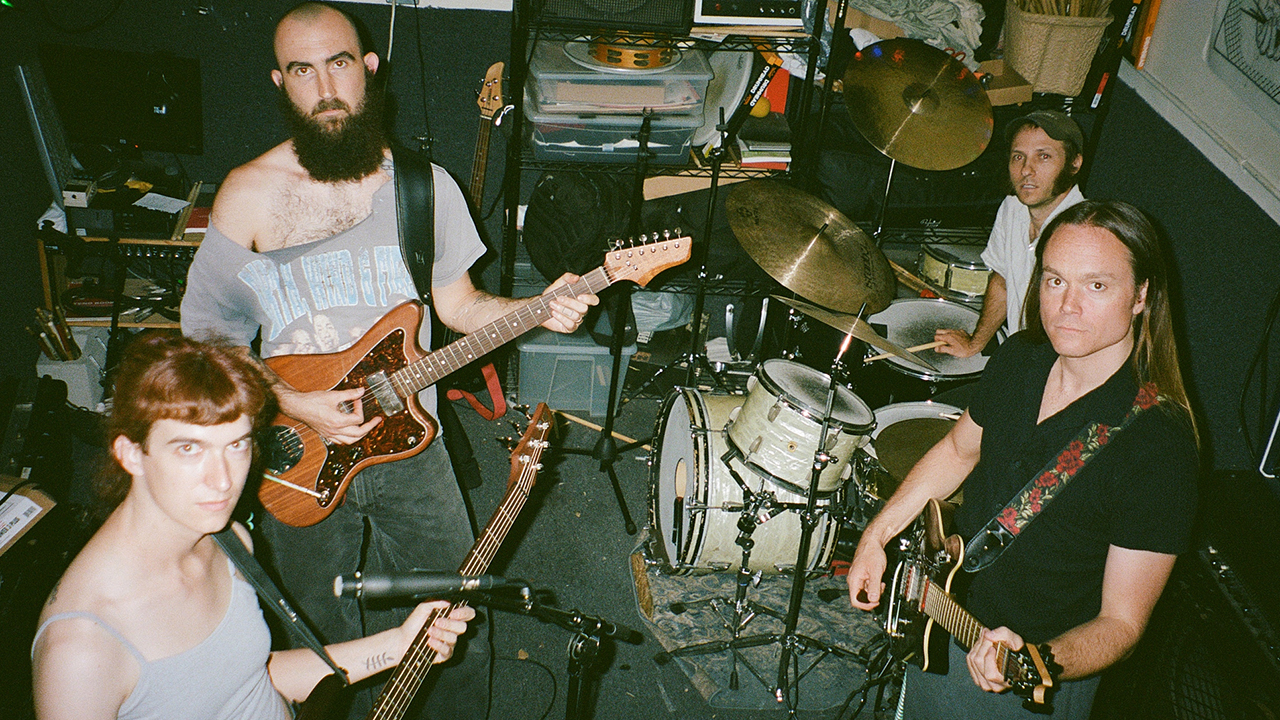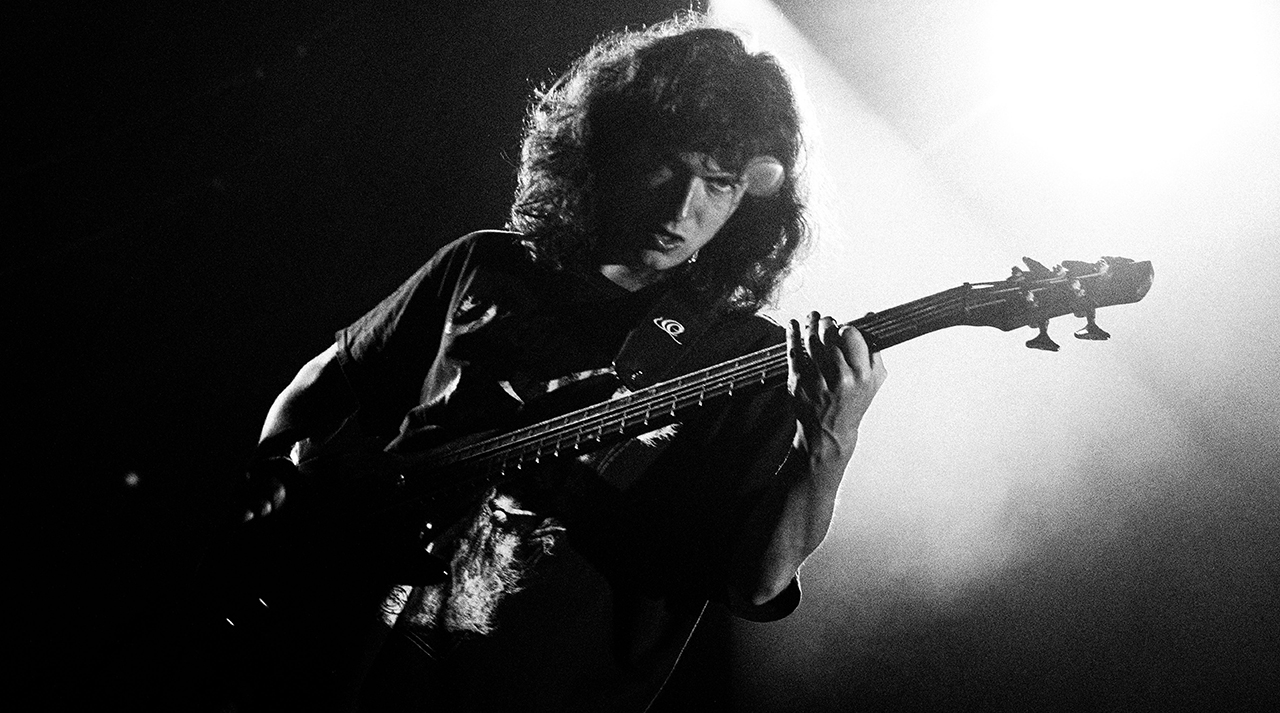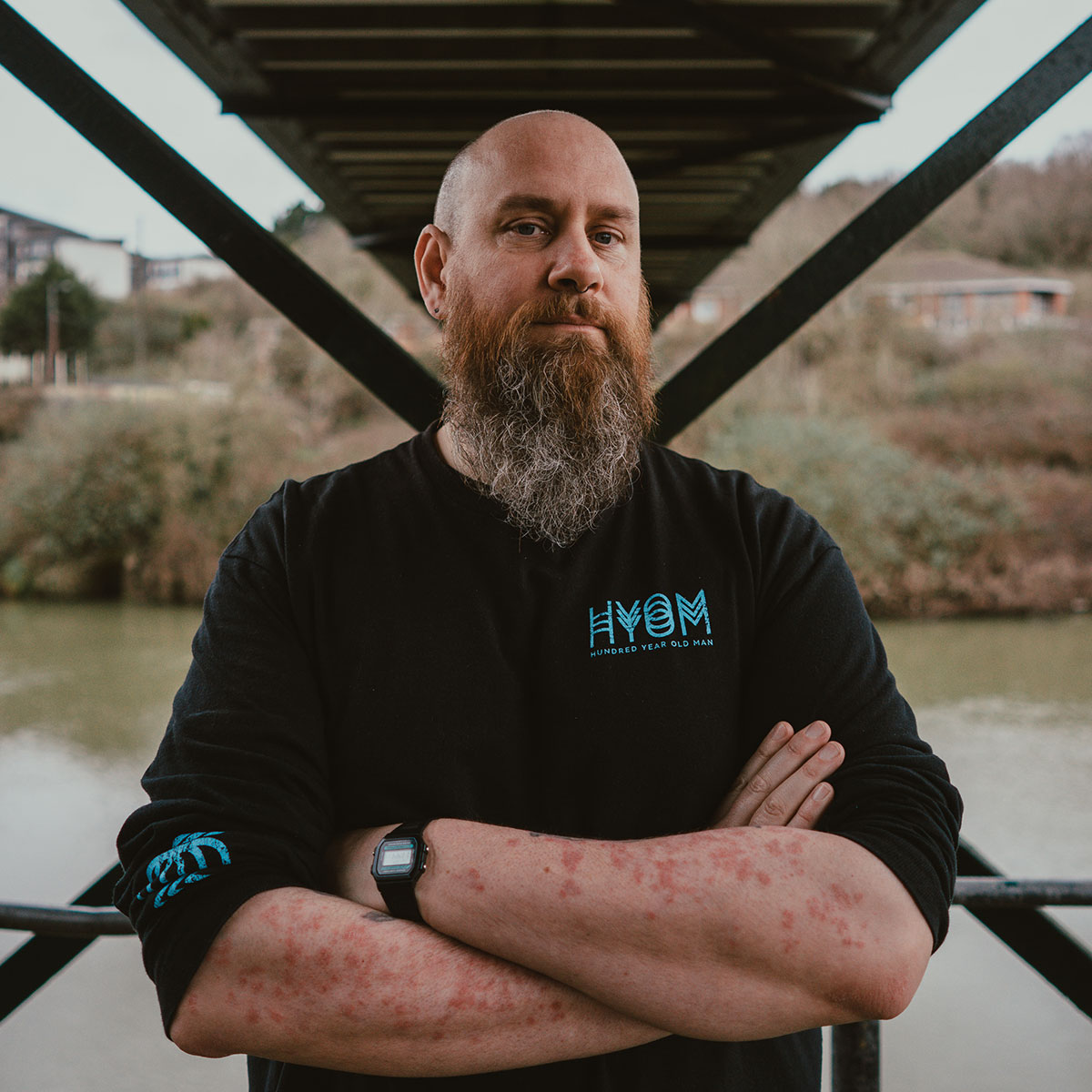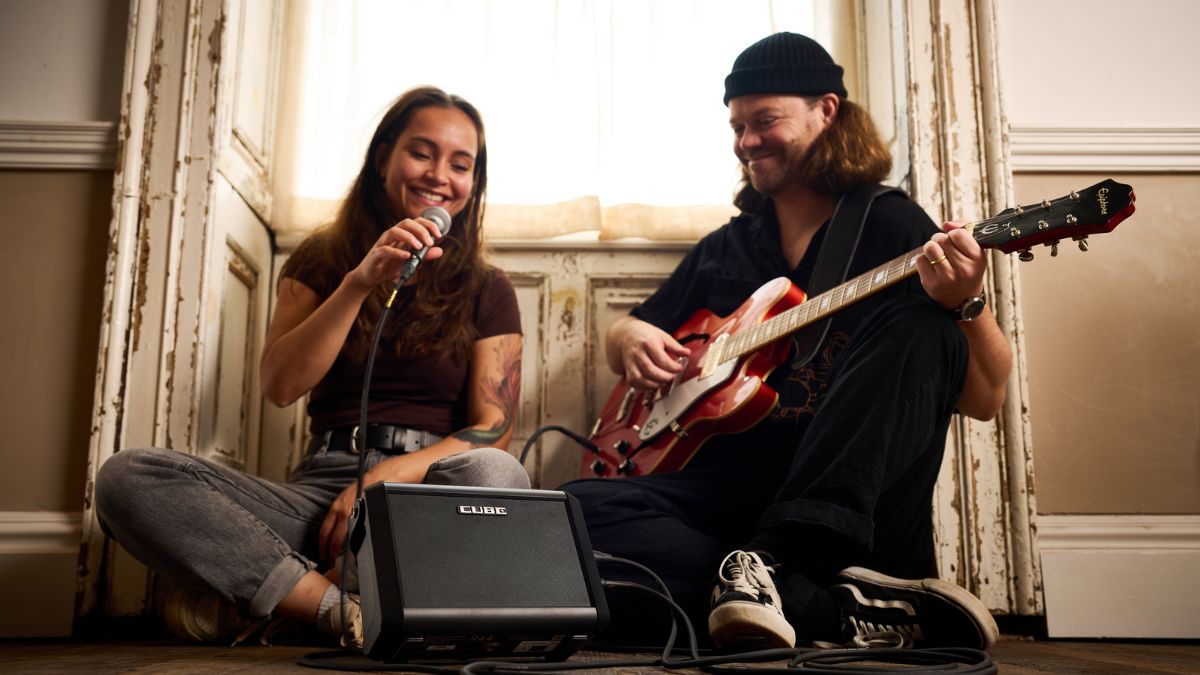“Extreme music expresses hardship and suffering – but we’re reaching towards joy”: Introducing Agriculture, the “ecstatic black metal” band who recorded their sophomore LP as the LA wildfires closed in
Ahead of the quartet’s US tour, guitarist Dan Meyer, guitarist/producer Richard Chowenhill and bassist Leah Levinson discuss the secret behind their prolific work ethic, meeting Joe Satriani and the making of a dream guitar

Drawing inspiration from Zen Buddhism, queer history and Bob Dylan to Jaco Pastorious and beyond, Agriculture have long been interested in exploring joy amid suffering.
“If you’re in a forest, you can’t see all the water underground, nourishing these beautiful trees,” says guitarist Dan Meyer. “Joy is the underground source of life in the forest of extreme metal!”
He believes his band’s sophomore LP The Spiritual Sound is heavier than what’s gone before. Guitarist and producer Richard Chowenhill explains why: “While we were making the record in my LA studio, the wildfires were only a couple of miles away.
“The presidential election results, the fires and everything else come through in the music.”
Meyer, Chowenhill and bassist Leah Levinson – who have released new music every year since they started out – tell Guitar World about their latest activities.

What’s unique about your current setup?
Meyer: “The dad of one of my guitar students offered to make me my dream guitar as a wedding present. It has a slimmer SG neck on a Jazzmaster-style body, minus all the bells and whistles up the top. The real trick is that it’s fitted with Thunderbird bass pickups. I never play anything else anymore.”
All the latest guitar news, interviews, lessons, reviews, deals and more, direct to your inbox!
Chowenhill: “I got my EVH Wolfgang in a trade when I lived in Boston, fitted with custom overwound pickups. They’re a little bit hotter so they really scream, and they fill the spectrum nicely with Dan’s bass pickups. I have the hardtail – I love a whammy, but with all the tuning changes, it’s perfect.
“The special thing is the asymmetrical neck profile. You get that nice C-neck feeling, but it’s slightly thinner behind the treble strings.”
How do you balance the tone of two heavy guitars and a five-string bass?
Levinson: “I used a rare Music Man Sabre on the album, but my Ibanez for touring has a very focused, even sound. So, I split the signal after my tuner and noise gate, send that into an MXR Poly Blue Octave that’s two octaves up, then that goes into a Big Muff, which I blend with my clean tone.
“That’s gated, then goes into a Darkglass Microtubes preamp for the scooped mids Ampeg sound. It makes space for Richard and Dan. I usually have the treble knob on my bass cranked to get the articulation coming through.”
Meyer: “One of the tricky things working with blast beats is getting a lightness in texture so the tremolo-picked harmonies balance the heaviness. But Leah’s bass rig and my bass pickups give us the nimbleness we need harmonically. It provides our heaviness, even though we’re almost never dropping down.”
How do you translate this meticulously thought-out studio sound for live shows?
Chowenhill: “We use to tour with 6505+ heads and Randall Diavolo 4x12s. But about a year and a half ago we switched over to digital; it’s convenient for travelling but also minimizes the variance in sound between venues. Dan has a Line 6 Helix, and I’ve got one running through an Orange Pedal Baby with presets for every song on the record ready to go.”
Meyer: “Especially in heavy metal, the live show should be different from the recording. Richard spends an enormous amount of time putting in ear candy on the record to make it a really pleasurable and engaging listening experience.
“The Helix allows us to control as much as we can, but people aren’t coming to shows to hear us play the highest-fidelity set ever; it’s to be part of a really special and joyful experience.”

What do you hope to achieve on your upcoming US tour?
Levinson: “We played Chicago with Chat Pile the night Trump was elected. I was at the merch table all night and it was easy to forget about the election. Extreme music expresses hardship and suffering, but we’re reaching towards joy. We know shit is going on, but we’re working to be present right now.”
Meyer: “Joy is an appropriate response to suffering, which is a little counterintuitive. It’s important to bear witness to the horrors, but not get mired in them. The fantasy of eternal bliss – ‘all night, love you forever, never going to give you up’ – appears over and over in pop music. We’re at a perpendicular angle to that: ‘The joy is going to stop, but here it is!’”
Chowenhill: “Community is huge and I love demonstrating that on stage. Each of us has our own look and sound, but we’re all together and love each other. I hope that transmits as an invitation to the audience.”
We’re getting back in the studio in three hours! It really feels limitless
Dan Meyer
Richard, could you tell us more about the picture with Joe Satriani you posted on social media?
Chowenhill: “I was thrilled to run into him backstage when we played Hellfest. As a kid, I’d spent so long listening to him, reading his columns and checking out his Live in San Francisco DVD from the library.
“He’s one of those players, along with Van Halen, Alexi Laiho, Steve Vai, Petrucci and Bettencourt, who all have the chops and cool technique – but Satriani was an early one for me.”
Now The Spiritual Sound is done, do you already have plans for what comes next? Will you be keeping to your prolific schedule?
Meyer: “We’re getting back in the studio in three hours! We’re already writing for the next record. It really feels limitless. We’ve poked fun at genre, calling ourselves ‘ecstatic black metal’ – beyond that, we’ll be guided by wherever our ears take us.”
- The Spiritual Sound is on out now via The Flenser.
Dan discovered guitar in his early teens – playing every day on a sunburst Les Paul copy he still regrets selling – and has never stopped. He studied English at Cambridge then spent several years working in Japan, addicted to karaoke and manga. His fiction, music journalism, essays and translations from Japanese have appeared in Granta, The Guardian and The Quietus, among others. He plays a battered but cherished Thunderbird in progressive sludge-metal band URZAH.
You must confirm your public display name before commenting
Please logout and then login again, you will then be prompted to enter your display name.


